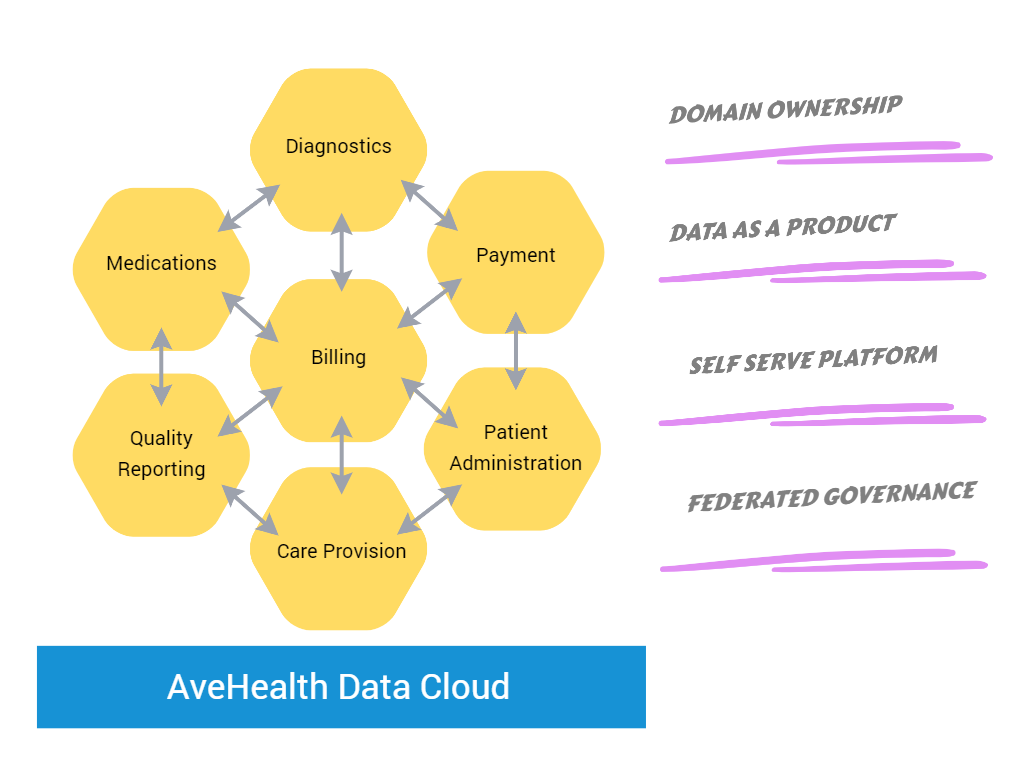
Advancing Healthcare with Data Mesh Architecture: Achieving Technical and Organizational Excellence
The healthcare industry is experiencing a digital revolution, generating vast amounts of data across various domains, such as patient care, clinical trials, drug discovery, and operations management. Proper management of this data is crucial for enhancing patient outcomes, reducing costs, and advancing innovation in healthcare. A data mesh architecture is an excellent solution for addressing this challenge.
Technical Architecture:
Domain-driven Design: Adopting a domain-driven design approach helps align data with specific healthcare domains, improving patient outcomes, and developing more effective treatments.
Decentralized Data Storage: The healthcare industry struggles with data silos, where data is typically managed centrally within specific departments or hospitals. Decentralized data storage, combined with well-defined APIs and data contracts, breaks down these silos, enabling different departments to manage and share their data products.
Self-Service Tools: Implementing self-service tools, including data pipelines, processing tools, and governance tools, enables healthcare organizations to create, manage, and share their data products effectively, promoting collaboration across departments, and improving patient outcomes.
Organizational Change Management:
Culture Change: To successfully adopt a data mesh approach, healthcare organizations must promote a culture of data ownership that empowers different departments to manage their own data products and assume responsibility for their data quality and governance.
Skill Development: Healthcare organizations must invest in developing skills related to domain-driven design, data product management, data quality management, and data governance to ensure they have the expertise necessary to manage decentralized data products effectively.
Governance and Policy: Establishing policies and guidelines that support decentralized data ownership and align with healthcare objectives is essential for effectively implementing a data mesh in the healthcare industry. These policies should address data security, privacy, quality management, and governance.
In conclusion, adopting a data mesh architecture can significantly benefit the healthcare industry, enhancing patient outcomes, reducing costs, and driving innovation. However, achieving a data mesh requires both a technical infrastructure and organizational change management. Healthcare organizations must invest in both to manage data effectively in a decentralized and collaborative way while adhering to global principles for data architecture and governance.
Contact us to find out how we can help with your organization’s digital transformation initiatives.
